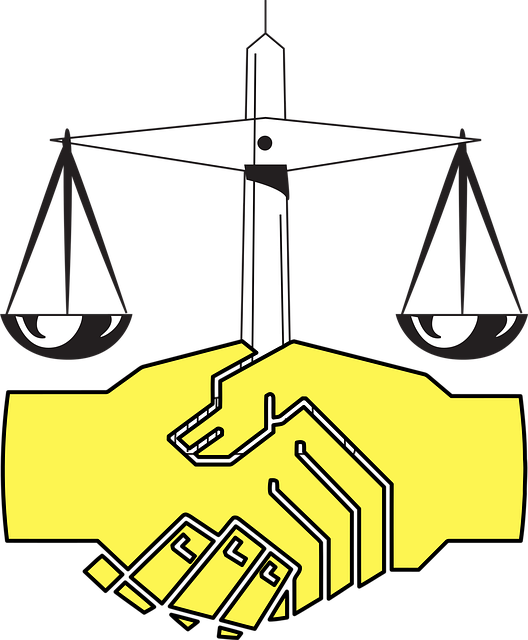Court cases concerning property ownership, ranging from civil disputes to criminal charges, are complex legal battles rooted in land rights, tenancy, and inheritance. These cases demand a nuanced approach where civil and criminal law may blur, requiring meticulously crafted strategies for fair resolutions while preserving the integrity of the justice system. This text explores pivotal court cases involving property ownership issues, shedding light on how judicial rulings have shaped property rights over time, offering valuable lessons for legal professionals and individuals. In contemporary criminal law, addressing white-collar crimes in the digital age poses significant challenges due to complex financial transactions, with traditional jury trials shifting towards more analytical approaches. Evidence, including documents and physical proof, is crucial in establishing guilt or innocence, guided by legal precedents that ensure fairness and consistency across the justice system.
Delve into the intricate world of criminal law through the lens of property ownership disputes. This article explores how understanding these contentious matters—from historical landmark court rulings to contemporary challenges—is foundational to navigating complex criminal cases.
From ancient legal precedents to modern-day interpretations, we analyze key decisions that have shaped the landscape of property rights. We also delve into the evolving role of evidence and legal precedent in resolving contemporary court cases involving property ownership issues, highlighting their profound implications for criminal law.
- Understanding Property Ownership Disputes: A Foundation for Criminal Law Cases
- Landmark Court Rulings in Property Ownership Issues: Historical Perspectives
- Contemporary Challenges and Their Legal Implications in Criminal Law
- The Role of Evidence and Legal Precedent in Resolving Property-Related Criminal Cases
Understanding Property Ownership Disputes: A Foundation for Criminal Law Cases
Property ownership disputes form a critical foundation for many criminal law cases. These disputes often arise from complex legal issues related to land rights, tenancy, and inheritance, which can lead to intense court battles. Understanding these matters is essential as they frequently serve as the underpinning of more significant legal ramifications. In many instances, what starts as a civil dispute between individuals or entities can escalate into criminal charges if certain threshold elements are met, such as fraud, coercion, or violence.
Court cases involving property ownership issues require a nuanced approach where the line between civil and criminal law can blur. For clients facing such charges, achieving extraordinary results often hinges on meticulous legal strategy and advocacy. Whether through settlement negotiations or jury trials, the goal is to resolve these disputes fairly while upholding the integrity of the criminal justice system.
Landmark Court Rulings in Property Ownership Issues: Historical Perspectives
Contemporary Challenges and Their Legal Implications in Criminal Law
In contemporary criminal law, one of the significant challenges lies in addressing complex issues arising from white-collar and economic crimes. These cases often involve intricate financial transactions, corporate structures, and court cases involving property ownership issues, making them difficult to prosecute and defend. The legal implications are profound, as these crimes can have widespread societal effects, impacting not just individuals but entire respective businesses and the economy at large.
The rise of digital technologies has further complicated matters. Cybercrimes, fraud schemes, and money laundering operations now fall under the criminal law’s purview, necessitating a constant evolution in legal strategies. Jury trials, once the cornerstone of criminal justice, are increasingly tasked with understanding nuanced financial crimes that may lack tangible evidence. This shift demands a more analytical approach from both prosecutors and judges to navigate the intricate web of modern economic transactions.
The Role of Evidence and Legal Precedent in Resolving Property-Related Criminal Cases
In resolving property-related criminal cases, evidence plays a pivotal role. Court cases involving property ownership issues hinge on concrete proof that establishes guilt or innocence. This includes documents like deeds, titles, and financial records, as well as physical evidence linked to the alleged crime. For instance, in white collar defense scenarios, financial transactions records can be crucial in demonstrating intent or absence thereof. The strength of evidence directly impacts the outcome of such cases, guiding judges’ decisions based on legal principles and previous court rulings.
Legal precedent also significantly influences property-related criminal cases. Previous judgments from similar situations create a framework for interpreting laws and regulations. These precedents serve as guidelines for both prosecutors and defense lawyers, shaping their strategies and arguments. Across the country, consistent application of legal precedents ensures fairness and consistency in adjudicating court cases involving property ownership issues. This, in turn, fosters trust in the justice system among both victims and perpetrators, reinforcing the role of the courts in maintaining societal order and addressing philanthropic and political communities’ concerns regarding property rights.
In conclusion, exploring court cases involving property ownership issues reveals a complex interplay between civil and criminal law. From historical landmark rulings shaping property rights to contemporary challenges like fraud and corruption, these cases demand a nuanced understanding. The effectiveness of evidence and legal precedent in resolving property-related criminal cases underscores the critical need for robust legal frameworks and continuous judicial interpretation. By examining these aspects, we gain insights into the intricate dynamics of criminal law as it navigates the complex landscape of property ownership disputes.






